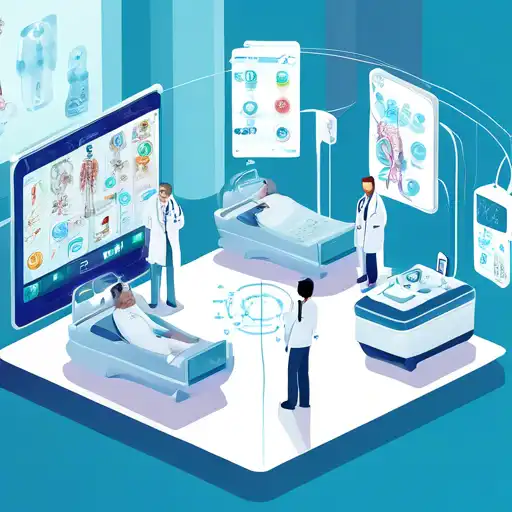Introduction to IoT in Healthcare
The integration of the Internet of Things (IoT) in healthcare is transforming the way medical services are delivered. By enabling devices to communicate and share data, IoT technologies are improving patient care, enhancing operational efficiency, and reducing costs. This article explores the pivotal role of IoT in healthcare and its potential to revolutionize the industry.
The Benefits of IoT in Healthcare
IoT in healthcare offers numerous benefits, including remote patient monitoring, improved patient engagement, and better disease management. Devices such as wearable fitness trackers and smart medical devices allow for continuous monitoring of patients' health, leading to timely interventions and personalized care plans.
Remote Patient Monitoring
One of the most significant advantages of IoT in healthcare is the ability to monitor patients remotely. This not only improves the quality of care for patients with chronic conditions but also reduces the need for hospital visits, thereby lowering healthcare costs.
Enhanced Patient Engagement
IoT devices empower patients to take an active role in managing their health. By providing real-time data on their health status, patients can make informed decisions about their lifestyle and treatment options.
Challenges and Solutions
Despite its benefits, the adoption of IoT in healthcare faces several challenges, including data security and privacy concerns. However, advancements in encryption and blockchain technology are providing solutions to these issues, ensuring that patient data remains secure.
Data Security
Protecting sensitive patient information is paramount. Implementing robust security measures and complying with regulations such as HIPAA are essential steps in safeguarding data.
Interoperability
Another challenge is ensuring that different IoT devices and systems can communicate seamlessly. Developing universal standards and protocols is crucial for achieving interoperability.
Future Prospects
The future of IoT in healthcare is bright, with innovations such as AI-powered diagnostics and smart hospitals on the horizon. These advancements promise to further enhance patient care and operational efficiency.
AI and IoT
The combination of AI and IoT is set to revolutionize healthcare diagnostics. By analyzing data from IoT devices, AI can identify patterns and predict health issues before they become critical.
Smart Hospitals
Smart hospitals, equipped with IoT devices, are the future of healthcare facilities. These hospitals will leverage IoT to improve patient care, streamline operations, and reduce errors.
Conclusion
IoT in healthcare is a game changer, offering unprecedented opportunities to improve patient care and operational efficiency. Despite the challenges, the potential benefits far outweigh the risks, making IoT an indispensable part of the future healthcare landscape.
For more insights into how technology is transforming healthcare, explore our articles on digital health and medical technology.
